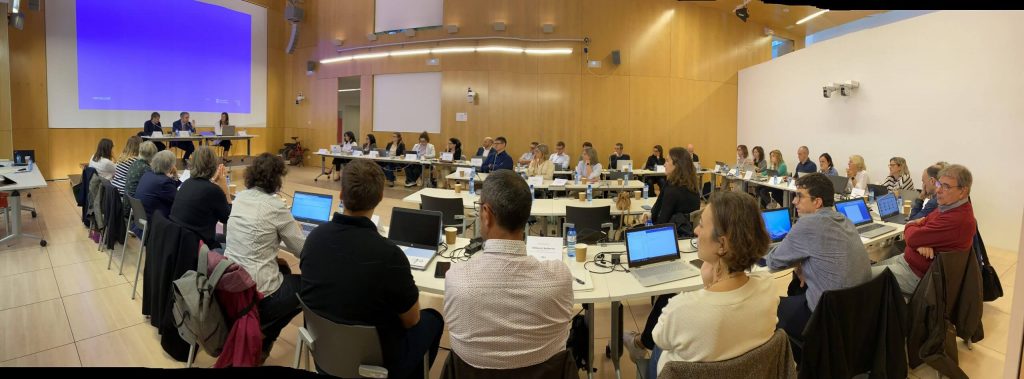Over the course of the Horizon 2020 European research funding programme, CERCA centres have received 90 grants from the European Research Council (ERC), making them the sixth-ranked European player in terms of number of grants received, behind only the National Centre for Scientific Research (CNRS, France), the Max Planck Society (Germany), and Oxford University, the University of Cambridge and University College London (UK). This is a milestone in itself, as never before has a programme or institution in Catalonia, such as that of the CERCA system, had such high visibility in European research. The CERCA system obtained 50% of ERC grants in Catalonia and approximately 25% of those in Spain.
In addition, an ERC Synergy, the ERC’s most prestigious and rarely awarded grant, was obtained during this period. The CERCA system is also the European leader in ERC Proof of Concept (PoC) grants. All this puts us in an significant position in Europe, but not without its weaknesses, because subsidies are just that, and there is never certainty as to whether these levels can be maintained in future years.
However, this relative success is not accompanied by other elements one might think would logically occur. CERCA researchers hold no chairs on ERC assessment panels. Although we have outstanding researchers, including Clívia Sotomayor, Mara Dierssen, Laura Lechuga and Xavier Trepat, none of them are chairs. In contrast, other institutions, such as the Spanish National Research Council (CSIC), with a longer history and greater international visibility than the CERCA system, occupy some of these prestigious positions. We clearly have work to do here. Europe is not aware of our reality and, if I may be so bold, I would add that Europe is somewhat reluctant to find out. This short-sightedness perpetuates decisions that are neither logical nor expected. This therefore marks a clear course of action for the near future.
The CERCA brand must be used as a mark of quality in Europe and everywhere else. Failure to do so is to shoot ourselves in the foot to the detriment of CERCA centres and the country.
And with regard to the ERC, this year, on 12 April, the CERCA Institute is organising a workshop to support researchers from the centres in order to increase their capacity to apply and pass through the filters for different ERC grant modalities. In this action, we will mainly be assisted by leading researchers who have already obtained ERC grants (or who are assessors), who will share the knowledge of certain issues that can be critical to passing the selection process with potential grantees. The specific workshop on ERC Synergy, featuring Elies Campo (August Pi i Sunyer Biomedical Research Institute, IDIBAPS), Ivo Gut (National Center for Genomic Analysis–Centre for Genomic Regulation, CNAG-CRG) and Xavier Trepat (Institute for Bioengineering of Catalonia, IBEC) will be a major step forward in boosting our people’s participation in the call.
A European Research Council grant is not strictly speaking a scientific milestone, but it is an indirect indicator that our research is of interest to the world.





